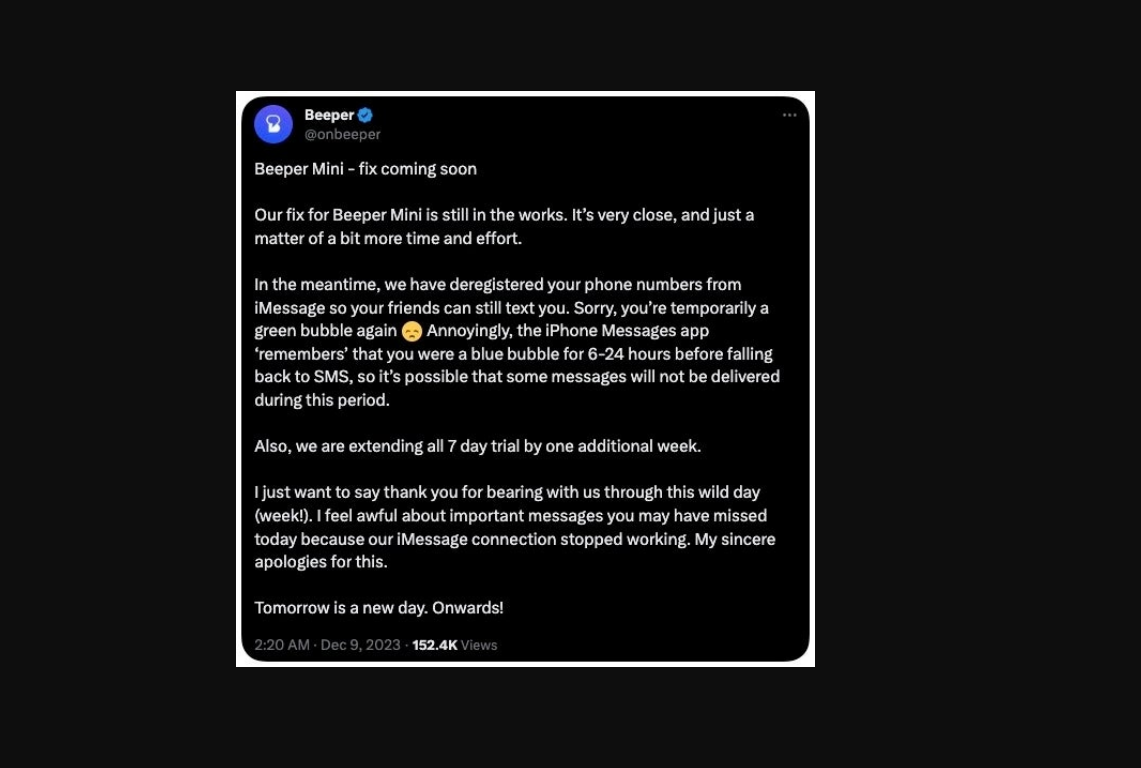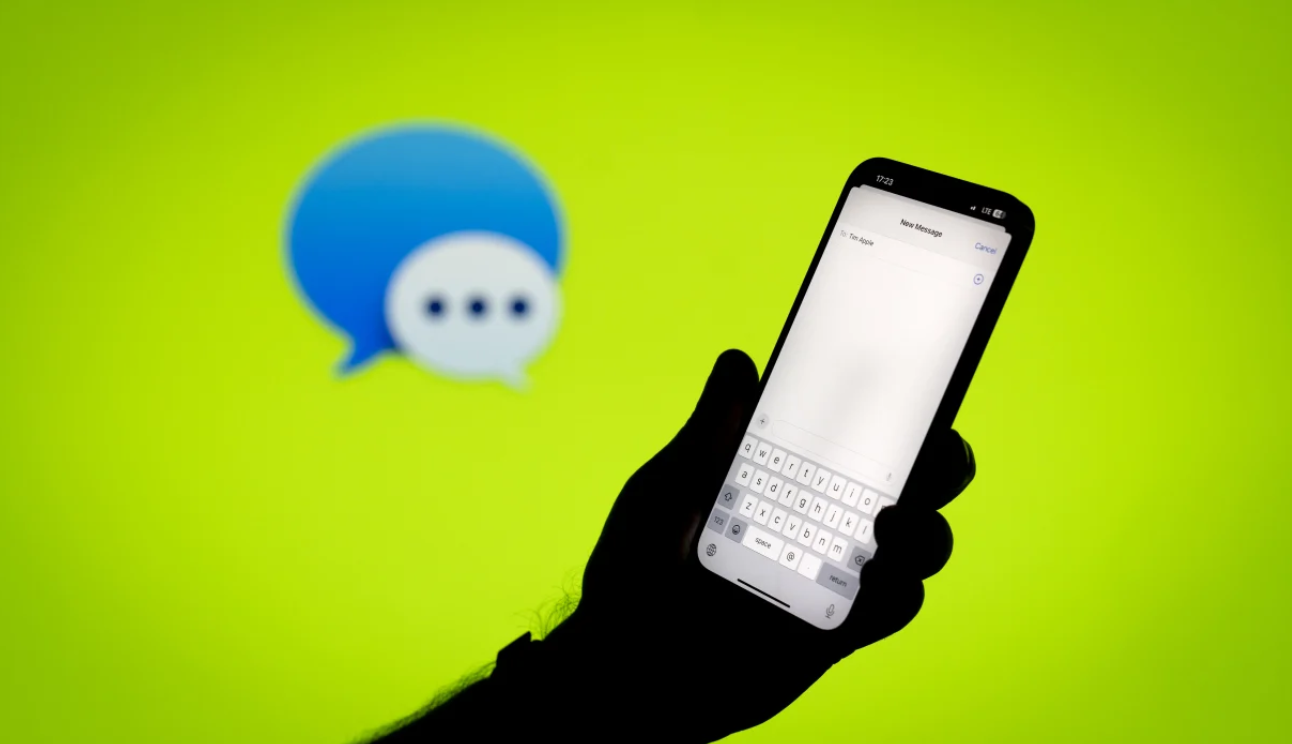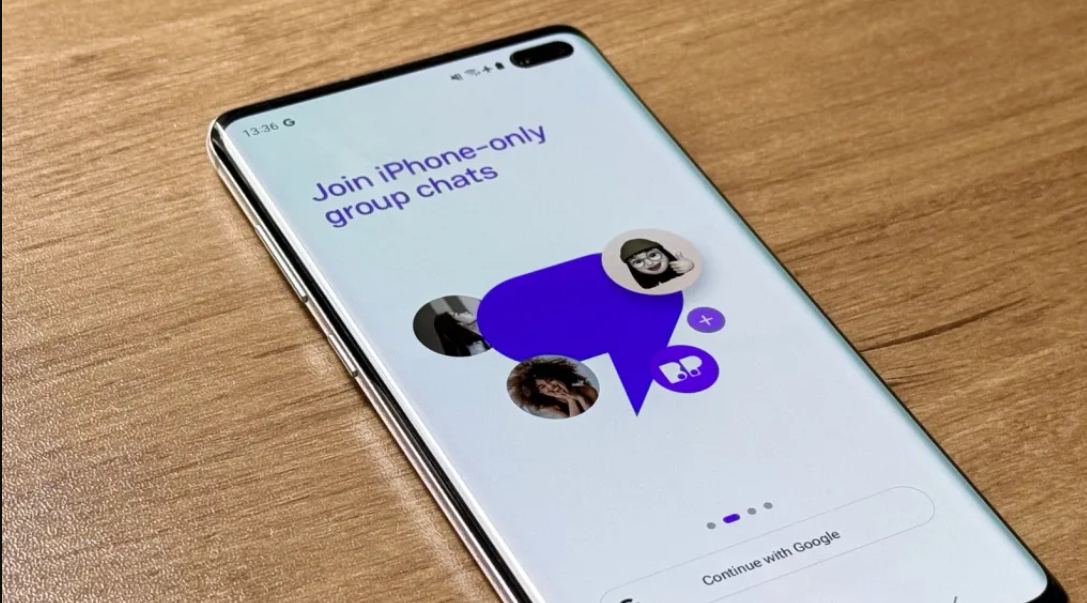Highlights
- Apple bans Beeper Mini for using fake credentials to access iMessage.
- Beeper Mini offered direct connection to Apple’s servers without intermediaries.
- Apple plans to introduce RCS support for better cross-platform messaging.
- Beeper Mini’s future uncertain after Apple’s decisive action.
iMessage for Android no more? Apple has taken definitive action against the third-party application Beeper Mini, a service designed to enable Android devices to use the iMessage service to communicate with iPhone users.
The service has been banned by the Cupertino giant and looking back, it is relatively easy to see why.
Apple is a complete privacy freak when it comes to its services and Beeper Mini seems to be violating this.
Apple’s Reasoning For Banning Beeper Mini

According to Apple, third-party applications like Beeper Mini exploited fake credentials to access iMessage, potentially exposing user metadata and opening doors to spam and phishing attacks.
Apple wants to protect its ecosystem and the privacy of its users so apps like these must go.
Beeper Mini, in its operation, differed from previous attempts to bridge iMessage to Android.
Tech enthusiasts will remember the failed attempt that was Nothing Chats. Beeper Mini though, was a bit different.
It directly connected to Apple’s service, bypassing the need for a middleman or a remote Mac.
The connection process is a bit complicated to explain but here is a brief about it.
Beeper uses Apple’s end-to-end encryption protocol to ensure messages are encrypted before being sent directly to Apple servers.
This capability is a result of reverse-engineering the iMessage protocol and encryption.
Beeper Mini, therefore, operates independently, directly communicating with Apple’s servers, with all encryption keys remaining on the user’s phone, ensuring privacy and security.
However, this method requires convincing Apple’s servers that the communication originates from an Apple device, a process Apple views as exploiting fake credentials to access iMessage.
Cross-Platform Messaging and Apple Vying To Bring RCS to iPhones

All said and done, spoofing Apple servers doesn’t sit well with the company and the decision is that Beeper Mini has got to go.
So again, there is no Android alternative to iMessages although to be fair, and this has been mentioned so many times, this problem is more prevalent in the US.
Even so, the closure of Beeper Mini comes at a time when the debate over secure messaging across different platforms is intensifying.
Some users argue that the absence of an iMessage application for Android compromises messaging security between the two platforms.
In response, Apple has recently announced its plan to support RCS (Rich Communication Services) by next year, aiming to improve texting experiences across different devices.
We have to say that is a move that was not expected of Apple but is a welcome change for users across the US on an Android phone.
What’s Next For Beeper Mini?

Following Apple’s move to disable Beeper Mini, the team behind the app has been actively working to restore functionality.
As of last Saturday, Beeper has managed to reinstate iMessage services in their original Beeper Cloud app, though Beeper Mini remains non-operational.
Eric Migicovsky, the founder of Beeper, is confused over Apple’s actions, questioning the rationale behind blocking an app that extends encrypted messaging capabilities to Android users.
He says that it is a potential contradiction in Apple’s approach, emphasizing that Beeper Mini offers a more secure alternative to standard SMS for messaging between iPhone and Android users.
Whatever is the case, this saga has quickly unfolded out of Beeper’s hand and even if the company somehow renews the service, it will only be a question of when and not if, Apple wants to shut it down again.
FAQs
Why did Apple ban Beeper Mini and what does it mean for cross-platform messaging?
Apple banned Beeper Mini, citing the use of fake credentials to access iMessage, which poses risks like user metadata exposure and vulnerability to spam. The absence of iMessage for Android continues to be debated, but Apple’s upcoming support for RCS marks a significant shift in their approach to cross-platform communication.
What are the implications of Apple’s decision for Beeper Mini and its users?
Following Apple’s ban, Beeper Mini’s functionality was significantly impacted, with the app currently non-operational. While Beeper has restored iMessage services in their Beeper Cloud app, the future of Beeper Mini remains uncertain.
What unique features does Beeper Mini offer for Android users?
Beeper Mini is designed to enhance the messaging experience for Android users interacting with iMessage. Its key features include transforming Android numbers into ‘blue bubbles’ in iMessage, offering a fast and user-friendly interface, and ensuring secure communication with end-to-end encryption. It operates independently without needing additional hardware.
How does Beeper Mini ensure user privacy compared to other messaging apps?
Beeper Mini stands out in terms of privacy, especially compared to apps like Nothing Chats. It employs end-to-end encryption, ensuring that messages, contacts, and Apple ID passwords remain secure and inaccessible to the service, contrasting with Nothing Chats’ privacy concerns.
What impact will RCS have on iPhone messaging?
RCS (Rich Communication Services) will modernize iPhone texting, introducing features like read receipts, typing indicators, and the ability to send high-resolution media. However, it won’t replace iMessage but will function alongside it, enhancing the standard SMS and MMS functionalities.
What sets Beeper Mini apart from previous Android messaging apps?
Beeper Mini uniquely communicates directly with Apple’s servers, allowing Android phone numbers to appear as ‘blue bubbles’ in iMessage.
This approach avoids the need for relaying messages through a Mac or using an Apple ID, distinguishing it from apps like Nothing Chats.
What are the key features of Beeper Mini?
Beeper Mini introduces several innovative features, including transforming Android phone numbers to ‘blue bubbles’ in iMessage, a new design emphasizing speed, user-friendly interface, end-to-end encryption for enhanced security, and standalone functionality without the need for additional hardware.
Is Beeper Mini a free service?
Beeper Mini is available on Google Play Store with a seven-day free trial, followed by a subscription fee of $2 per month, making it an affordable option for users seeking an iMessage-like experience on Android.
How does Beeper Mini compare to Nothing Chats in terms of privacy?
Unlike Nothing Chats, which faced privacy issues due to unencrypted message transmission and storage of media files in Google’s database, Beeper Mini prioritizes user privacy with end-to-end encryption and claims no access to messages, contacts, or Apple ID passwords.
How does Beeper Mini work?
Beeper Mini is fully end-to-end encrypted.
Your messages are end-to-end encrypted.
Neither Beeper, Apple, nor anyone except the intended recipients can read your messages or view attachments.
How secure is Beeper mini ?
No Mac relay server is used. Beeper does not have access to your Apple account.
All messages are processed locally within the Beeper Mini Android app.
No cloud Mac server is in charge unlike all other competing apps.
Also read: Apple Set to Introduce RCS Support for iPhones by 2024 for Enhanced Messaging
Also read: iPhones Embrace RCS Messaging Through Beeper, Enhancing Cross-Platform Communication
Also read: Beeper Mini Launches as a Fresh iMessage Alternative for Android
